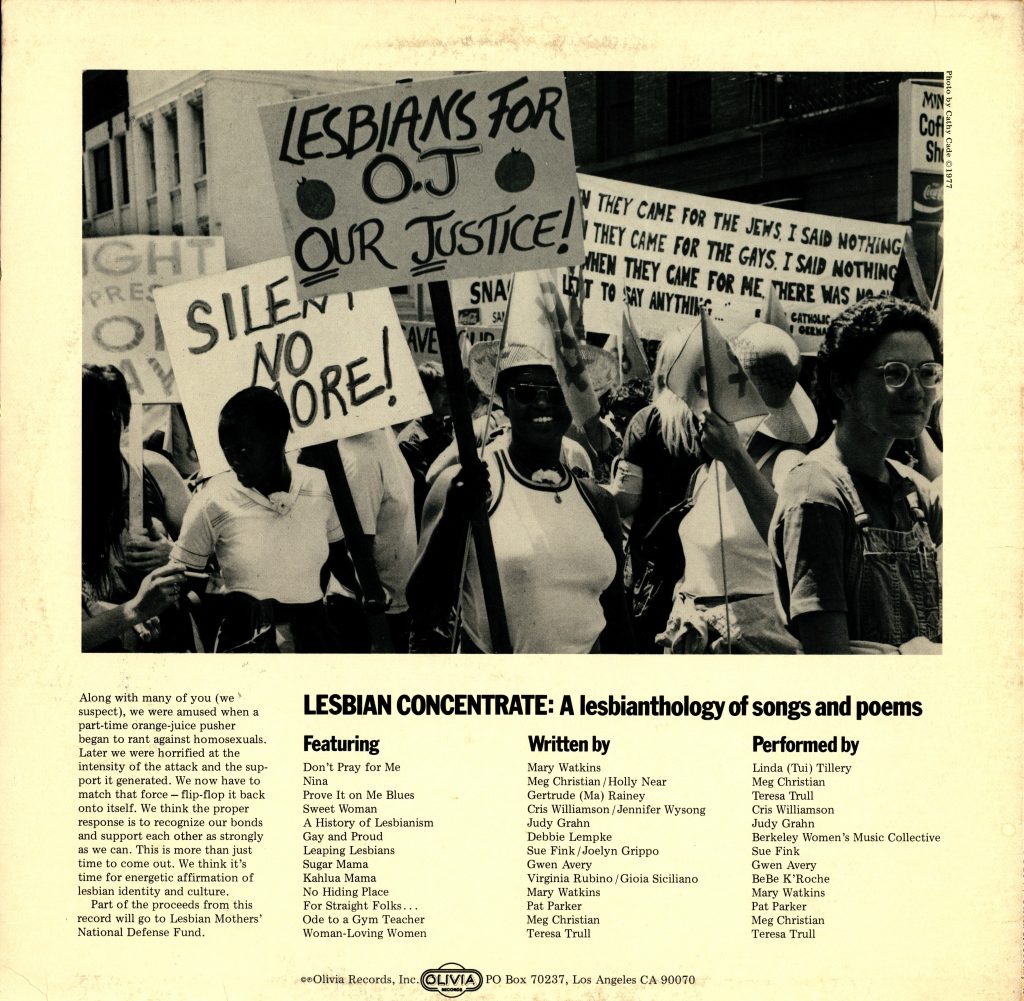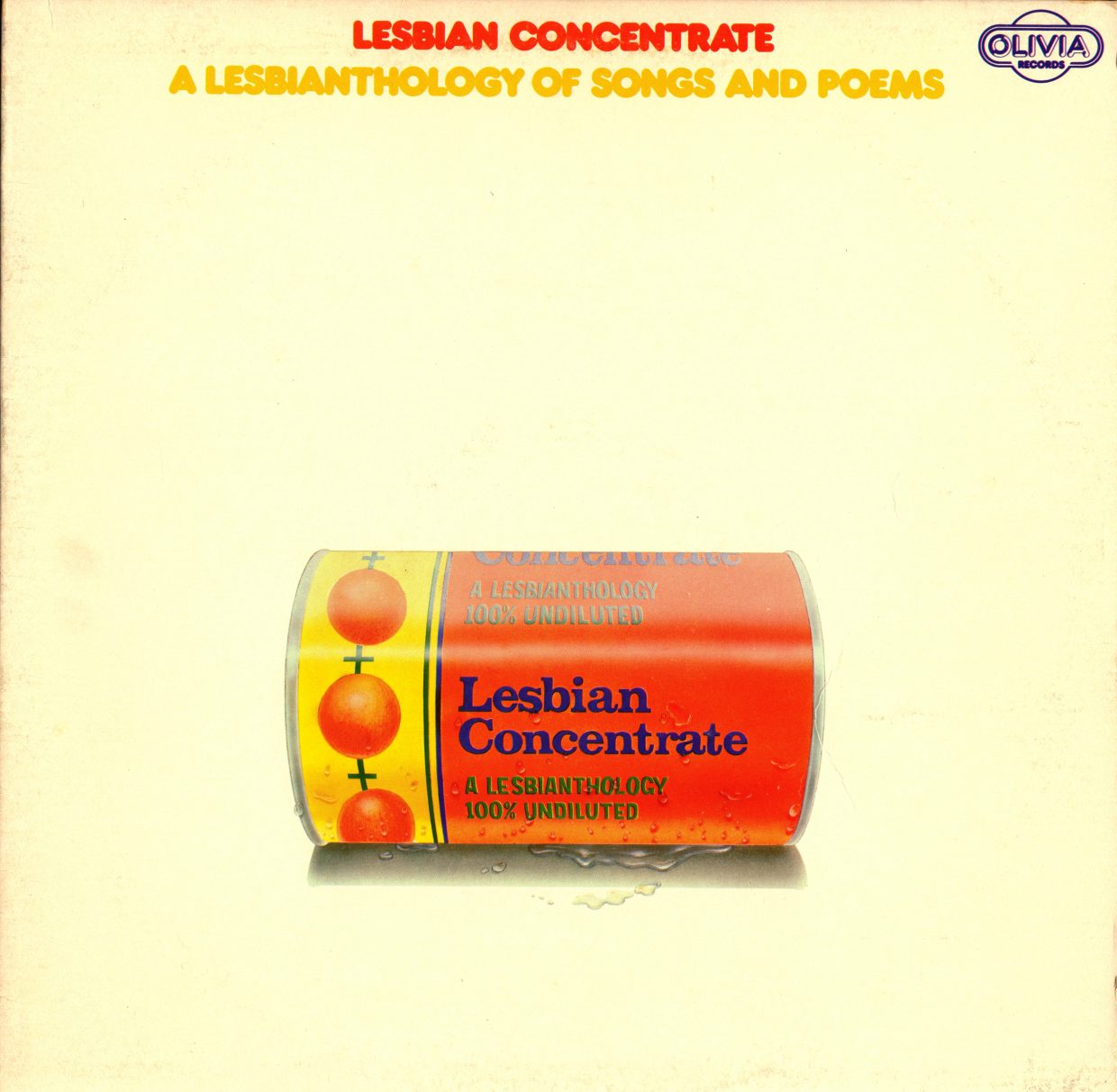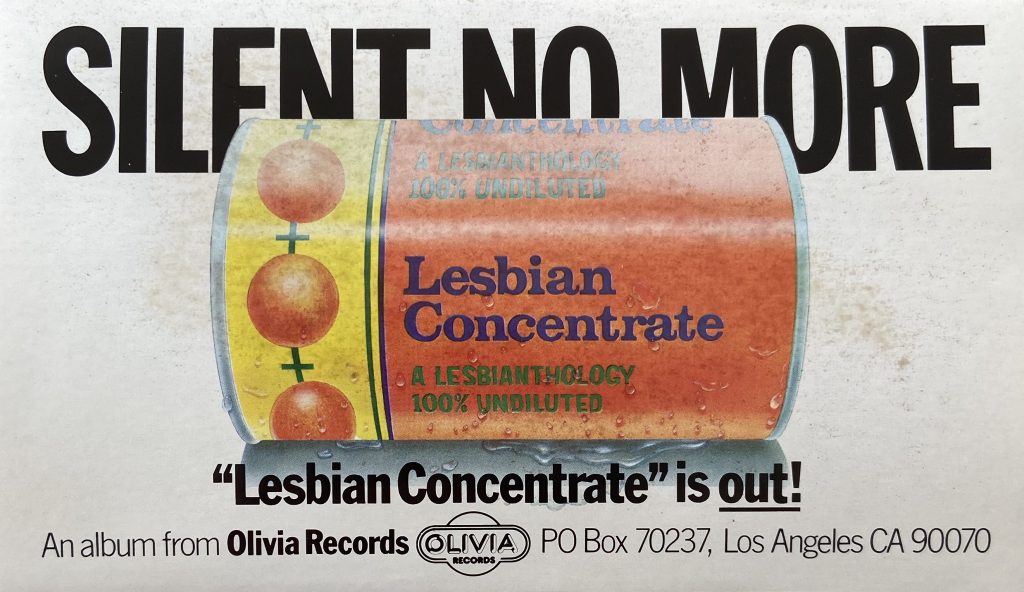Lesbian Concentrate liner notes, 1977, Olivia Records. Sophia Smith Collection, Women’s Music Archives records and collected music.
In the later 1970s, some cities around the country began passing anti-discrimination laws. In 1977, the Dade County Commission in Florida approved a law that would outlaw discirmination on the basis of sexual orientation in employment, housing, and public services. 1
At the same time, there was emerging conservative backlash against gay rights led by a conservative evangelical woman, Anita Bryant, in a campaign called “Save Our Children”. With this campaign, she and her supporters aimed to repeal or defeat anti-discrimination legislation.
In response, as part of a wave of lesbian protest, Olivia Records created Lesbian Concentrate, an compliation anthology album–a “lesbianthology” of songs and poems. 2 The orange juice can on the cover was a nod to Anita Bryant’s past work modeling for Florida orange juice ads.

Lesbian Concentrate back cover, 1977, Olivia Records. Sophia Smith Collection, Women’s Music Archives records and collected music.
Lesbian Concentrate included some songs from already released Olivia albums and a few poems from Olivia’s poetry and spoken word album by Pat Parker and Judy Grahn, as well as a number of newly recorded songs for the album. Among the new songs were “Don’t Pray for Me,” a song written by Mary Watkins and sung by Linda Tillery, and “No Hidin’ Place,” written and sung by Mary Watkins. 3.
The album connected lesbian lives in the 1970s with those of black and white women from earlier eras, through Teresa Trull’s cover of the Ma Rainey song, “Prove It on Me Blues”–a song from 1928 about loving women. 4
However, in June 1977, the citizens of Dade County in Florida voted to repeal the gay rights ordinance. In releasing the album, Olivia Records donated part of the album proceeds to the Lesbian Mothers’ National Defense Fund. They included information about the Defense Fund in the liner notes and compiled and published lists of lesbian and feminist organizations as resources for their audience. 5
In her memoir, Ginny Berson writes: “We had great joy in making this album. It was certainly not the most coherent musically, and the performances were uneven. But this was one case where we let our politics override our aesthetics. We were angry, we were fired up, and we were strategic. We thought that many women would look to us for a response, and we wanted our statement to be big, bold, brazenly lesbian, and with a clear and strong declaration of our politics. There was nothing subtle or nuanced or delicate about any part of it. We made a record that was a loud, proud explosion of lesbianism–forty-seven minutes of unbridled lesbian joy.” 6

